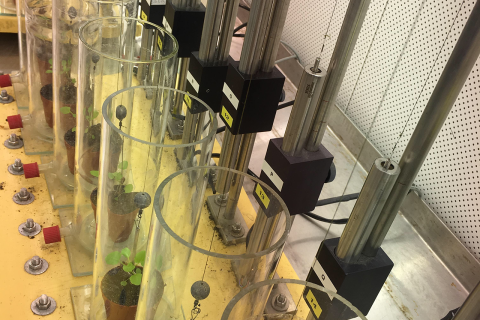We study fundamental mechanisms that help plants to cope in challenging abiotic environments.
As our planet heats up, global weather patterns have becoming increasingly unpredictable. This has led to a surge in weather events associated with extremes in precipitation and temperature, with negative impacts on plant biodiversity and crop productivity. Understanding the core developmental and physiological programs controlling plant adaptation in stressful environments is key towards generating the next generation of climate-resilient crops.

Rashmi Sasidharan
We investigate how plants sense, respond to and tolerate water stresses such as flooding and drought.

Martijn van Zanten
Optimal performance under suboptimal conditions; We study the signalling and response mechanisms of how plants cope with temperature cues across the gradient from cold to warmth using natural variation, functional physiology and molecular genetic approaches.

Nora Gigli Bisceglia
We are involved in understanding how plant cell walls contribute to the activation of the signaling responses induced by climate change-related threats.

Mohamad Abbas
Our research investigates how flowering plants adapt to different altitudes through understanding the intricate interplay between environmental cues, cellular signaling pathways and oxygen availability.

Dorota Kawa
We study cell-type-specific stress adaptations in complex environments where plants face multiple abiotic and biotic stresses and, at the same time, engage in beneficial interactions with microbes.








